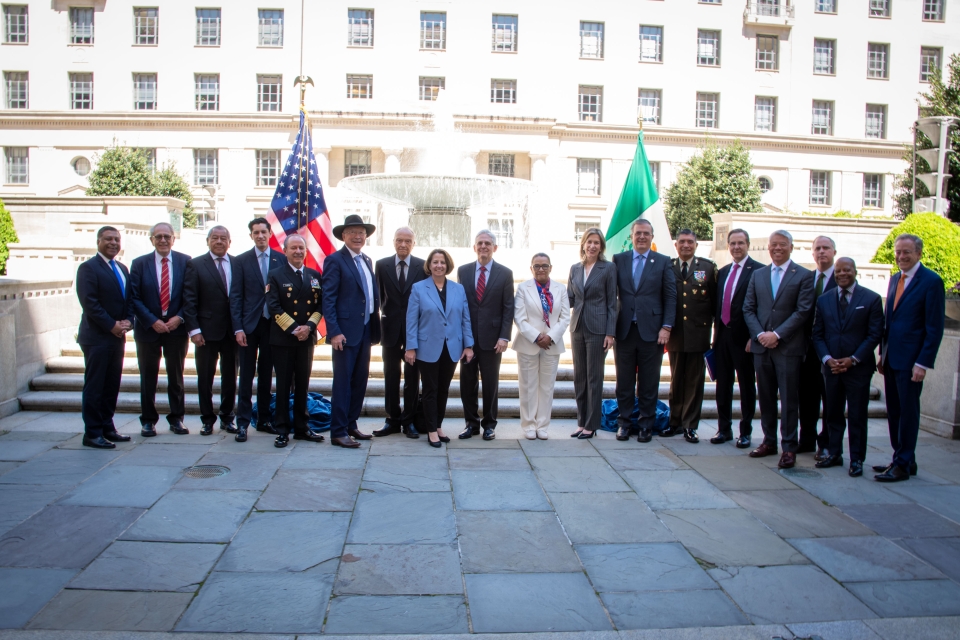César Jáuregui is the first former senator who comes to occupy a seat on the Federal Judicial Council, the administrative body of the Judiciary established in 1995.
In an interview, the PANista from Chihuahua says it is time to fight “compadrazgos” in the federal courts, and “give teeth” to a code of ethics that has merely remained in the category of “good intentions.”
“We have seen that there is a crossing between officials to issue appointments, which we consider this to evade the law because the law states that an official is required to abstain from naming their own relatives to the fourth grade.
“We’re trying to shape public policies that inhibit such practices, but are not prevented by the law, because when someone appoints a relative of someone else, not yours, it is clear that it is not violating the law, but we know that many of these appointments are in correspondence to other appointments. ”
– Are you referring to the Code of Ethics?
There is a code of ethics for many purposes it is not binding, and the problems that are in the best content and the texts are good intentions in that they are full of values and ethical considerations of a distant ideal to be reality .
What we want is to bring reality to these concepts.
We are not a court or an ethics commission sanctions, which are dealing in internal committees, particularly the discipline, is that ethics is a matter of consideration when issuing our resolutions
– What can you punish violations of the code?
Sure, there are many behaviors that do not have a penalty under the law, for example, the continued failure to work.
We seek a policy that inhibits the further committing such practices that seek no loyalty to the institution’s top official for a position on the recommendation of another officer of another court, but rather to raise awareness of the relationship between family members. What we seek is loyalty to the institution, the professionalization of the judiciary.
We are working with the minister retired Juan Diaz Romero, who is in charge of the National Commission of Judicial Ethics, to be able to carry out a very paradigmatic with honesty, decency, integrity that has to have all server public, not only judges, but to study and account clerks and judicial officers.
– Would give teeth to the code?
Exactly. Make it very clear interpretation, based on criteria that we have plenary power to establish, what we consider a content violation of the Code of Ethics and in that sense that they are related to the implementation of sanctions in the Committee on Discipline
– How many cases (cross appointment) have detected?
Jaúregui unresponsive, but with the hand signals that are many.
I think it was a first step to the extent that we have not had such broad statements that are occurring these crossings, but the Code of Ethics reproves many other behaviors that are not under the law of responsibility appear.
For example, the relationships that can arise between private matters and litigation, may also be links between counselors who can have a relationship or involvement, we are raining down on us wanting to pursue an interests some consideration before a court to bring a case.
The Minister-President (Guillermo Ortiz) has been very strong to avoid any direct call that may be made to any court, we have found a mechanism within the field of ethics to take the concerns that are getting a lot.
– What is the procedure?
What we do is via writing through the Executive Secretary of the House, the concern turns are received in this Council the concern of such fulanito and made available to the court equis, meaning they are always trying to preserve resolved principles.
Is aware of the concern that we received and we will not get into anything.
– But are cases in which there is no formal administrative complaint?
No administrative complaint and is monitoring a positive, but not the direct call, because that would affect much the independence of judges. There is no spirit of revenge or vengeance, or to be dwelling on the past, but really we want to create the conditions prevailing in the judiciary, the judiciary must uphold the principles that were signed in the Code of Ethics.
It would be very useful to find some examples that we could get into the pages of transparency to be known, because there must be an example.
Fuentes, Victor. “Quieren jueces sin compadrazgo” Reforma July 13, 2009.




